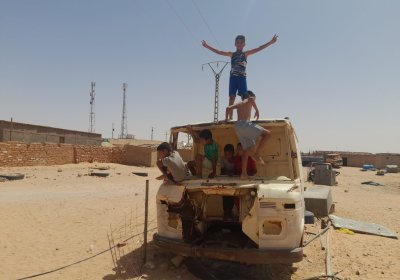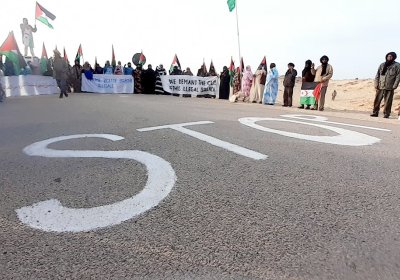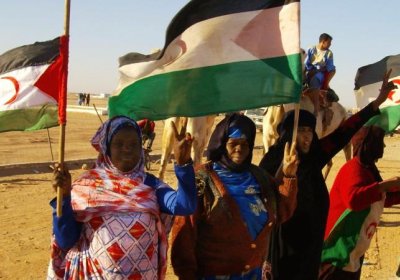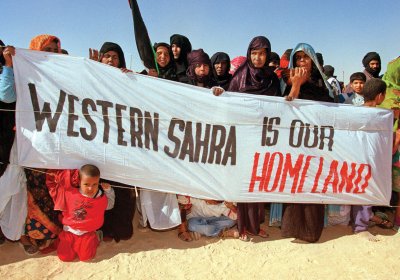Polisario Front’s Australian representative Kamal Fadel has urged Fortescue not to undermine United Nations decolonisation efforts by making a deal with the occupation government in Western Sahara. Ron Guy reports.
Polisario
Marc B Sanganee visited a refugee camp in Western Sahara — home to the Sahrawi people and administered by the Polisario, which is fighting to liberate their homeland from Morocco.
Thanks to manoeuvring by the United States, the prospects for peace and self determination for Western Sahara have suffered a serious setback, writes Vijay Prashad.
Morocco's occupation of Western Sahara has always been illegitimate. Responsibility for the resumption of war lies with the United Nations, argue the Socialist Alliance.
The Australia Western Sahara Association has expressed solidarity with the people of Western Sahara and condemned Morocco’s flagrant violation of the terms of the ceasefire.
Tony Iltis explains what led to the lifting of the ceasefire in occupied Western Sahara.
Tecber Ahmed Saleh is a prominent Western Sahara human rights advocate who was born in a refugee camp in Algeria where her family has lived for more than 40 years. She is currently touring Australia, hosted by the Australia Western Sahara Association (AWSA). Tecber was interviewed by Green Left's Tony Iltis. Video by Zebedee Parkes.
In an exclusive broadcast, US-based independent news outlet Democracy Now! broke the media blockade and visited the occupied Western Sahara in the northwest of Africa to document the decades-long Sahrawi struggle for freedom and occupying power Morocco’s violent crackdown.
Western Sahara is recognised by the United Nations as the last non-self-governing territory in Africa. Between 1973 and 1991 it was at war, as the pro-independence Polisario Front fought first against colonial rulers Spain, and after 1975, against Morocco, which invaded with Spanish encouragement.







